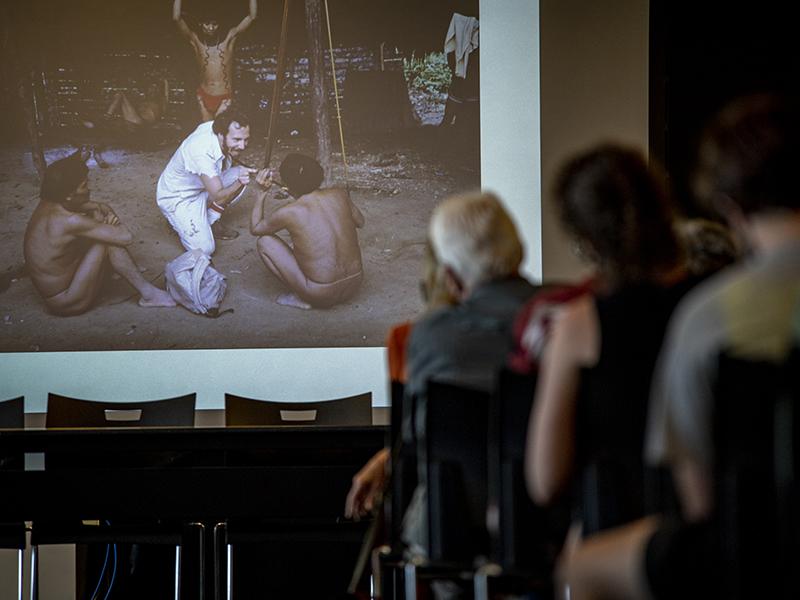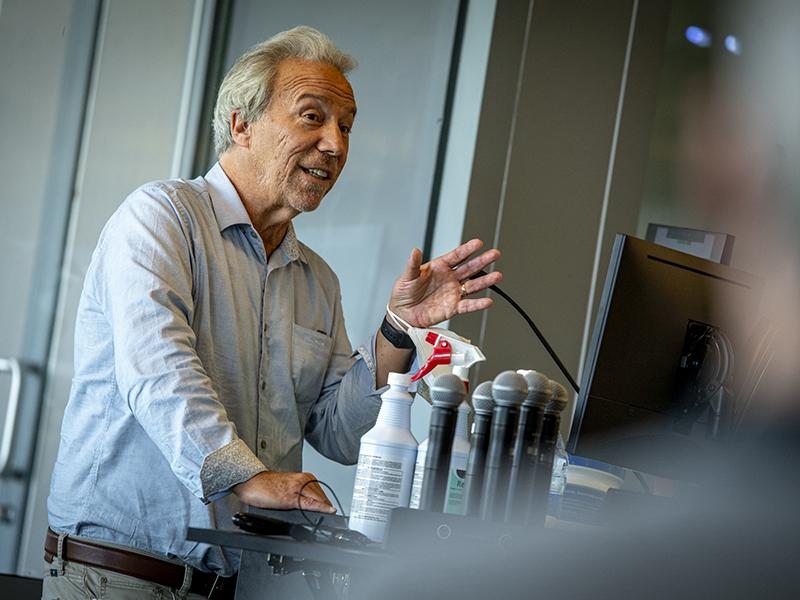Indigenous knowledge key to healthier global future, ethnobotanist says
Knowledge of the power of medicinal plants has been passed down for thousands of years by native healers worldwide. Science confirms that plants and other organisms often hold the solutions to numerous human medical problems. Mark Plotkin, renowned tropical biologist and ethnobotanist, came to Tulane last week to speak about his journey to uncover some of the mysteries surrounding medicinal plants.
Plotkin’s Oct. 8 talk, “Rum, Pirates and Medicinal Plants from New Orleans to the Amazon,” initiated the Department of Ecology and Evolutionary Biology’s fall 2021 Marcia Monroe Conery Lectureship Series.
Plotkin has studied the healing properties of plants in his years of research in South American rainforests and other locales. Working with indigenous tribes, he learned of many plants that are now being used to treat or prevent a wide array of medical conditions such as obsessive-compulsive disorder, anxiety, depression and schizophrenia.
“I have had the honor and privilege of working with some of these shamans for almost four decades, which creates an entirely different dynamic, when you want them to share with you the secrets of the forest, how to manage it and how to use it for therapeutic purposes,” Plotkin said. “Every single useful plant that’s come out of the rainforest was first learned from indigenous peoples.”
Protecting the forest and the knowledge and way of life of indigenous and local cultures is a top priority for Plotkin, who also encouraged an awareness of the interconnectedness of all life on this planet, something that indigenous peoples have always known.
“Dr. Mark Plotkin has explored and documented the deep knowledge of indigenous peoples with their native flora for foods, medicines and other uses at a time when both indigenous cultures and native plant biodiversity are under increasing threat from growing human populations, development and global environmental change,” said Keith Clay, chair of the Department of Ecology and Evolutionary Biology at the School of Science and Engineering.
Plotkin spoke of the urgent need for all people, particularly in areas where the land is vulnerable to the effects of climate change, such as the Gulf Coast, to work to protect the environment of critical ecosystems like the Amazon rainforest.
“I know a lot of environmental activists are here, and I salute you. But it doesn’t matter what we’re doing in Louisiana if the Amazon burns up or if the ice caps melt; we are in this together. But people need to hear that from all of us all the time. So, we’re at the tip of the spear here in Louisiana. We see what’s happened. We see what’s happening. We see the price we’re all going to pay. The challenge is in front of us.”
Plotkin, a New Orleans native, studied with Richard Schultes, considered “the father of ethnobotany,” and would go on to author Tales of a Shaman’s Apprentice, Medicine Quest and The Amazon: What Everybody Needs to Know, as well as producing the podcast, Plants of the Gods: Hallucinogens, Healing, Culture and Conservation. He is also president of The Amazon Conservation Team, a nonprofit dedicated to protecting the biological and cultural diversity of the Amazon. Plotkin’s team has taught native tribes to map their land, started shaman’s apprentice clinics, set up reserves for medicinal and sacred plants, and worked to protect uncontacted tribes. The organization has also collaborated with the Colombian government and local tribes to expand Serranía de Chiribiquete, the world’s largest tropical rainforest national park, which was originally set up by Schultes.


